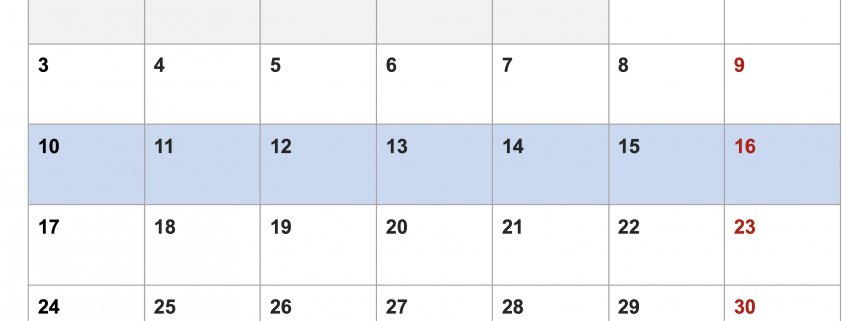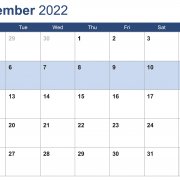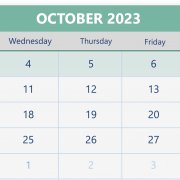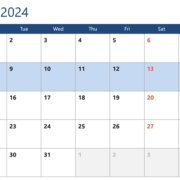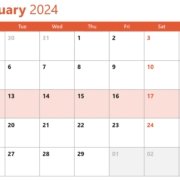7 days in healthcare (January 10-16, 2022)
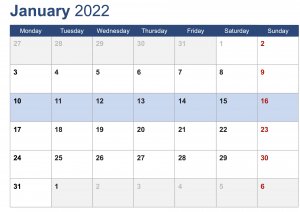
SUMMARY
From the international point of view, several issues stand out. In the first place, the agreement of the French Assembly taken on Sunday, January 16, to prevent the access of the unvaccinated to leisure and restaurant premises; also Quebec’s initiative to introduce special taxes on the unvaccinated; the WHO’s opinion that it is too early for COVID “flu” policies, as proposed by Spain; the calculation by ISGlobal (Barcelona) that COVID has already left 17 million deaths globally; and the big push for research on neurodegenerative diseases.
As for national news, the SEMFYC (one of the Primary Care medical societies) editorial had a great impact defending the “flu” policies of COVID and, therefore, the minimization of measures, encouraging, consciously or unconsciously, the “light” negationism. This position was quickly adopted by the central government and certain authorities of the Community of Madrid. The central government even tried to lead this position at the international level. Rejection of this idea by other Primary Care societies, a large number of experts, the WHO and the EU. Meanwhile, the incidence of COVID continues to rise to figures never seen in other waves (2,923 cases per 100,000 inhabitants). The price of antigen tests is regulated, after multiple requests from various groups. It is agreed to extend the third and fourth doses. Serious problems regarding sick leave, for which solutions are articulated about the legality of which is in doubt. The purchase of COVID medicines is announced. Ayuso Plan to stimulate the birth rate in Madrid.
As far as companies and other actors are concerned, a group of scientists in Texas announce a vaccine against COVID, which, according to them, it will be cheaper, easier to make and patent-free. Pfizer announces that it will have a new vaccine against the “ómicron” variant ready in March
INTERNATIONAL NEWS
- France: the Assembly approves by 215 votes against 58 the law that prevents the access of the unvaccinated to leisure and restaurant venues (Le Monde, Jan 16, 22)
- Quebec’s plan on special taxes on the unvaccinated is well received in Europe. the argument is: “10% of the population cannot overload 90%”. Cold reception at the federal level in Canada and in other provinces. However, in Europe it is not receiving a bad reception: Greece and Austria already fine the unvaccinated, Italy is studying it, France extends the “covid passport” (BMJ, Jan 14, 22)
- Fourth dose in Israel, which had already been announced for the immunosuppressed, is now being extended to health professionals and those over 60 years of age (Lancet Respir Med, Jan 11, 22)
- The WHO considers that it is too early to treat COVID-19 as endemic, contradicting the Spanish government’s proposal, and predicts that half of Europeans can be infected (FT, Jan 11, 22)
- COVID-19 pushed millions of Indians into poverty (The Economist, January 12,22)
- Some experts predict a new COVID wave at the beginning of the summer (The Guardian, Jan 14, 22)
- China’s zero COVID policy is creating problems for the manufacturing and distribution chain sectors (FT, Jan 16, 22)
- Beijing reports the first case of the “ómicron” variant (The Guardian, Jan 15, 22)
- COVID would have already left 17 million dead in the world (the official figures are 5.5 million), according to a study by the Barcelona Institute for Global Health, sponsored by the La Caixa Foundation (Diario Médico, Jan 15, 22)
- The Epstein-Barr virus may play a role in the development of multiple sclerosis (NYT, Jan 13, 22)
- The Economist looks at how healthcare is evolving into a consumer product (The Economist, Jan 15, 22)
- Great boost to research on neurodegenerative diseases, with 260 drugs under development: Alzheimer’s, Amyotrophic Lateral Sclerosis (ALS), Huntington’s, multiple sclerosis, multiple systemic atrophy, Parkinson’s and others (Diariofarma, Jan 14, 22)
NATIONAL NEWS
- Incidence of COVID and evolution of the sixth wave
o As of January 13, 2022, the 14-day cumulative incidence of COVID amounts to 2,923 cases/100,000 inhabitants. It is not clear if the peak of the wave has been reached or if we are still going up. In any case, the figures are very high (Official data Ministry of Health, update to Jan 13, 22)
o Almost half of the Spanish provinces have ICUs at very high risk (El País, Jan 12, 22)
o The debate on those hospitalized “for” COVID and “with” COVID is introduced (El Independiente, Jan 10, 22)
- “Influenzaization of the pandemic”
o An editorial in a journal of the SEMFYC (Spanish Society of Primary and Community Care Physicians), one of the three scientific societies of Primary Care, advocates the “influenza” approach of the COVID, avoiding counting individual cases and omitting general measures of protection (AMF-SEMFYC, Towards the end of the exceptionality, Jan 10, 22)
o The other scientific societies of Primary Care, as well as most of the experts, took a stand against the previous proposal, at least until the sixth wave was passed.
o Notwithstanding the foregoing, both the President of the Government and Minister Darias, and certain representatives of the Community of Madrid, expressed their agreement with the approach as “influenza”
o Not only that, but that approach was taken to the WHO, which showed its disagreement. Spain wants to lead this debate in the EU (El Periódico de España, Jan 12, 22)
- Regulation of the price of antigen tests
o The government (Interministerial Commission on the Price of Medicines) limits the price of antigen tests to 2.94 euros and they will continue to be sold only in pharmacies, with entry into force on Saturday, January 15, 2022. The price is 50% more expensive than in France and Germany (El País, Jan 13, 22)
o During the free sale period, the gross margin for pharmacies was 25-50% (El Economista, Jan 13, 22)
o FEFE expresses its “deep discomfort” at having to sell the tests at a loss (diariofarma, Jan 14, 22)
- The third and fourth doses are extended
o The Ministry of Health announces a fourth dose for patients at risk and will extend the third to those over 18 years of age (La Razón, Jan 13, 22)
- Purchase of COVID medications
o Spain closes an agreement with Pfizer to buy 344,000 doses of its drug against COVID
o The regions were unaware of this and ask for an equitable distribution (El Español, Jan 11, 22)
- Serious problem with sick leave
o COVID causes more than 10,000 sick leaves per day in Spain (El Independiente, Jan 11, 22)
o This situation collapses health centers
o A system is put in place so that discharge and discharge (after 7 days) take place in the same act. Madrid calls for a regulatory change, to which the Government does not seem willing (El Economista Jan 12, 22)
- Ayuso Plan to stimulate the birth rate in Madrid
o It is intended to go from 50,000 to 70,000 births/year in the region. The plan consists of aid of 500 euros, flexible working hours, deductions and support for assisted reproduction (La Razón, Jam 10, 22)
- Other themes
o FACME disagrees with the recertification plan of the Ministry of Health, which launched a tender to hire a consultant (Official note from FACME, Jan 13, 22)
o Teachers facing the return to classes, doubts with the new protocol and fears (El País, Jan 10, 22)
o A court condemns the Generalitat Valenciana to compensate the toilets for not giving them the means of protection (El País, Jan 11, 22)
o Ingesa attempts an agreement on biosimilars, which does not have the agreement of BIOSIM (diariofarma, Jan 9, 22)
COMPANIES, EMPLOYERS AND MAIN ACTORS IN HEALTH
- A group of scientists in Texas announce a vaccine (CORBEVAX) that is cheaper, easier to make and patent-free (The Guardian, Jan 15, 22)
- GSK rejects UNILEVER’s offer of 50,000 million pounds for its consumer division (FT, Jan 15, 22)
- Medicare introduces major restrictions on the use of Biogen’s drug against Alzheimer’s (NYT, Jan 11, 22)
- Adeslas will enter 1,655 million euros for MUFACE and ASISA 1,268 (PlantaDoce, Jan 12, 22)
- Vivanta adjusts its network of centers, putting its beauty business up for sale (PlantaDoce, Jan 12, 22)
- Pfizer says that it will have a new vaccine against “ómicron” ready in March (Redacción Médica, Jan 10, 22)
- Merck acquires the US company EXELEAD for 789 million dollars (PlantaDoce, Jan 7, 22)
- Medtronic reaches an agreement to acquire Affera (ConSalud, Jan 14, 22)
- Eugin acquires the Delaware Institute of Reproductive Medicine (PlantaDoce, Jan 10, 22)
- Caser Residencial acquires a new social health center in Laguna de Duero (PlantaDoce, Jan 13, 22)

